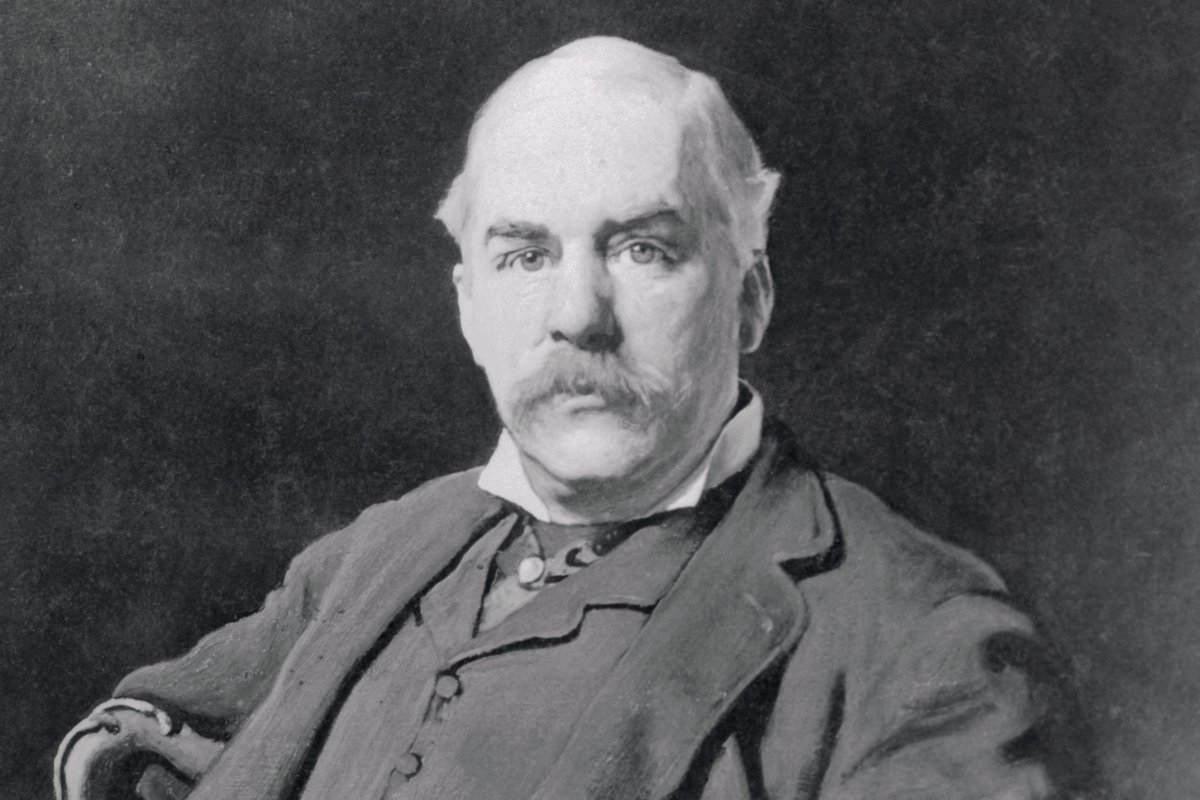A conspiracy theory branding the 1912 sinking of the RMS Titanic a "hit job" received renewed attention on social media in the days leading up to the Titan submersible tragedy.
Following a frantic search to find the advanced submersible Titan, which was carrying five people to tour the wreckage of the Titanic at a depth of about 12,500 feet, it was announced on Thursday that all had perished in the Atlantic Ocean.
Crews had been searching for the vessel since it disappeared on Sunday, after the sub set off from Newfoundland, Canada. It was later confirmed that all five victims' lives were lost, with debris suggesting that a "catastrophic implosion" had taken place. The passengers on board were identified as Captain Hamish Harding, Shahzada Dawood, Suleman Dawood, Paul-Henry Nargeolet and Stockton Rush.

The tragedy followed renewed social-media interest in the Titanic, which was the biggest passenger ship back in 1912. The New York-bound vessel—which had set sail on a doomed maiden voyage from Southampton, England—sank less than three hours after hitting an iceberg, sending more than 1,500 people to their deaths.
Weeks before the Titan tragedy unfolded, TikTok user @grinberg2024 posted a video in which it was claimed that there was something more sinister at play when the Titanic sank 111 years ago.
"The Titanic was actually a hit job," said the social-media user during a podcast chat. "All the richest people in the world in 1912 were supposed to be on this ship."
A "Mr. Astor" was also mentioned in the video. This was presumably in reference to property tycoon John Jacob Astor, who was one of the several millionaires who perished on the Titanic.
"He was the richest man in America at that time," according to the video. "Basically, this guy was in the way of the Federal Reserve. They wanted to create a central bank, the Rothschilds, and they couldn't. They already owned Europe, but they didn't own America yet.
"So what they did was, they can't just take someone out of that importance," it was said in the clip. "They made this big deal [of] everyone going on the ship. And then, in the last seconds, all the Rothschild people exited the ship, like, right before it was about to take off.
"The ship sank. All of a sudden, the richest guy in America died on the ship, and then all the politicians who he was basically bribing, all that money evaporated. So they all went to the Rothschild side, and then the next year, 1913, they started the 'Federal Reserve Bank', because there was no more opposition to it."
While the video received fewer than 1,000 views at its original source, it was last week shared on Twitter, where it has been viewed more than 17,000 times.
"I heard this conspiracy theory about the Titanic years back... but nobody ever put it together like this... and JPMorgan and the Rothschild being named again stands out to me more now than ever before," wrote the Twitter user who shared the clip.
The Federal Reserve Theory
The clip appears to be seen as enlightening information among some social-media users. The video offers a variation of a persistent conspiracy theory that financier J.P. Morgan—whose full name was John Pierpont Morgan, Sr.—had orchestrated the deaths of powerful men on the Titanic to pave the way for the Federal Reserve. This has been debunked in the past.
Previous theories include allegations that Morgan had targeted Astor; Macy's department store co-owner Isidor Straus; and mining boss Benjamin Guggenheim. While all three men did die in the disaster, a fact-check article published by Reuters in 2021 found that there was no evidence to suggest the trio were victims of any deliberate sabotage, or that they opposed Morgan's ideas of centralized banking. An investigation by The Washington Post found that Straus spoke in favor of the idea.
While it was stated in the TikTok video that "the Rothschild people exited" the Titanic seconds before it set sail, this allegation has previously been applied to Morgan, who owned the ill-fated vessel. Although Morgan was not aboard the Titanic, there is no evidence to suggest that he deliberately missed the trip because he knew that the ship would sink.

"I've never been able to find an authoritative 1912 source explaining the exact reason why J. P. Morgan canceled his passage on the Titanic, but he definitely didn't do so mere 'hours' before the ship's departure," Titanic expert George Behe told Reuters in 2021.
In the same article, Don Lynch, a historian at the Titanic Historical Society (THS), said: "One of J.P. Morgan's biographers said that France was changing its laws to prevent Americans from exporting art treasures from that country, so Morgan went to Paris to oversee getting his purchases out of the country before the new laws went into effect."
THS advisory board member Ray Lepien told the outlet that, as well as the theory regarding treasures, "the 'official' explanation was that he (Morgan) fell ill and wanted to take the 'cure' at a spa in France with his mistress." Lepien said: "It could have been both reasons."
As for claims in the video of a "Federal Reserve Bank," Professor Robert Hockett from Cornell Law School told Reuters: "It's always a tipoff that someone is ignorant of Fed matters when they refer to 'The Federal Reserve Bank.' There is no such entity. There is, rather, a 'Federal Reserve System' with 12 regional Federal Reserve District Banks spread all over the country (so as to avoid excessive centralization) and a regulatory agency called the Federal Reserve Board of Governors to oversee this system."
Onslaught of Conspiracy Theories
Speaking with The New York Times for an article published last week, Titanic experts expressed frustration at the onslaught of conspiracy theories that are regularly posted to social media regarding the ship's demise.
"It becomes kind of deflating to see a lot of this junk coming out," said Charles A. Haas, a founder of the Titanic International Society, who co-wrote five books on the vessel and dived down to the site of the shipwreck twice. "I feel like one of the very few voices crying out against the sound of a hurricane.
"The sad part is that many of the people following this sort of thing are teenagers, and they are woefully unwilling to do digging," Haas added.
Rafael Avila, a senior managing consultant for IBM, uses his spare time to post videos debunking conspiracy theories regarding the Titanic on TikTok, where he is known as "Titanic Guy."
"These theories have always been around inside the Titanic community, but they've sort of been on the fringe," Toronto-based Avila told the Times. He added that the popularity of such theories on the platform "started exploding" after "the algorithm picked up on that, seeing that people were engaging with that.
"My community of Titanic nerds look to me to correct the record, so I've taken it on as my responsibility," said Avila. "It's the internet. People can say whatever they want."
Uncommon Knowledge
Newsweek is committed to challenging conventional wisdom and finding connections in the search for common ground.
Newsweek is committed to challenging conventional wisdom and finding connections in the search for common ground.
About the writer
Ryan Smith is a Newsweek Senior Pop Culture and Entertainment Reporter based in London, U.K. His focus is reporting on ... Read more
To read how Newsweek uses AI as a newsroom tool, Click here.








